Home>Articles>What Is The Best Gauge For A Stainless Steel Sink
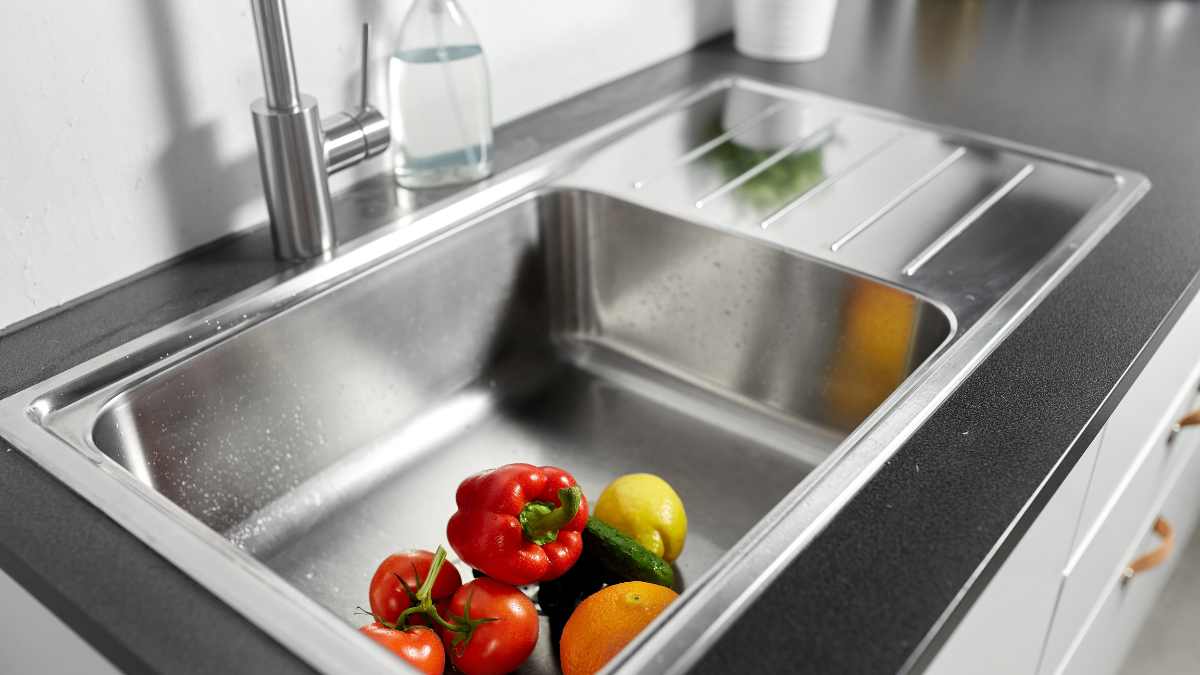

Articles
What Is The Best Gauge For A Stainless Steel Sink
Modified: December 7, 2023
Looking for articles on choosing the best gauge for a stainless steel sink? Find expert advice and recommendations in this comprehensive guide.
(Many of the links in this article redirect to a specific reviewed product. Your purchase of these products through affiliate links helps to generate commission for Storables.com, at no extra cost. Learn more)
Introduction
In the world of kitchen design, stainless steel sinks have gained great popularity due to their durability, resistance to corrosion, and sleek appearance. But when it comes to choosing the best gauge for a stainless steel sink, many homeowners find themselves overwhelmed by the options available.
The gauge of a stainless steel sink refers to the thickness of the steel used to construct it. The lower the gauge number, the thicker the steel. While it may not seem like an important factor, the gauge of a sink can significantly impact its performance, durability, and cost. Therefore, it’s important to understand the different gauge options available and their pros and cons.
In this article, we will delve into the factors to consider when choosing the best gauge for a stainless steel sink, as well as explore the advantages and disadvantages of different gauge options. By the end, you will have a better understanding of which gauge suits your needs and preferences.
Key Takeaways:
- Choose a thicker gauge (16 or 18) for heavy usage and durability, while considering noise reduction and cost. Thinner gauges (20 or 22) offer affordability and modern aesthetics, suitable for smaller kitchens and budget-conscious homeowners.
- Gauge 16 provides unmatched durability and noise reduction, ideal for high-traffic kitchens. Gauge 18 strikes a balance between durability and cost, while gauges 20 and 22 offer affordability and modern aesthetics for smaller kitchens.
Read more: How To Paint A Stainless Steel Sink
Factors to Consider for Choosing the Best Gauge for a Stainless Steel Sink
When selecting the gauge for your stainless steel sink, there are several key factors to take into consideration to ensure you make the right choice. These factors include:
- Usage and Functionality: Determine how you will be using your sink. If you anticipate heavy use, such as washing large pots and pans on a regular basis, a thicker gauge might be more suitable to handle the wear and tear.
- Durability: Thicker gauge sinks are generally more durable and less prone to denting or denting. Consider the level of durability you require based on your household’s needs.
- Cost: Thicker gauge sinks tend to be more expensive due to the higher density of steel. Consider your budget and find a balance between durability and cost that works for you.
- Noise Reduction: Thicker gauge sinks tend to produce less noise when water hits the surface or when dishes are being washed. If noise is a concern for you, opt for a thicker gauge sink to minimize sound.
- Aesthetics: Thinner gauge sinks have a sleeker and more modern look, while thicker gauge sinks have a more substantial and industrial feel. Choose the gauge that complements your kitchen’s overall style and design.
- Installation: Thinner gauge sinks are lighter and easier to install, making them a suitable option for DIY installations. Thicker gauge sinks may require additional support due to their weight.
By carefully considering these factors, you can narrow down your options and make an informed decision about the best gauge for your stainless steel sink. Each factor will depend on your personal preferences, lifestyle, and budget constraints.
Pros and Cons of Different Gauge Options
When it comes to stainless steel sinks, there are several gauge options available in the market. Let’s explore the pros and cons of some common gauge options:
- Gauge 16:
- Gauge 18:
- Gauge 20:
- Gauge 22:
Gauge 16 is the thickest option available for stainless steel sinks. Its main advantage is its exceptional durability and resistance to denting. This gauge is ideal for busy kitchens with heavy usage, as it can withstand the demands of daily tasks. However, gauge 16 sinks tend to be more costly and may require additional support during installation due to their weight.
Gauge 18 strikes a balance between durability and cost. It is a popular choice among homeowners who want a sturdy sink without breaking the bank. This gauge offers good resistance to denting and provides a sound-absorbing quality that helps reduce noise. It is a versatile option suitable for most household needs.
Gauge 20 is a more affordable and lightweight option. It is a viable choice for small kitchens or for homeowners who prioritize budget and aesthetics over heavy-duty usage. While gauge 20 sinks may be more prone to denting compared to thicker gauges, they are still durable enough for everyday use.
Gauge 22 is the thinnest option available and is often chosen for its sleek and modern appearance. It is lightweight and easy to install, making it suitable for DIY projects. However, thinner gauge sinks are more susceptible to denting and may produce more noise when water hits the surface or dishes are being washed.
Understanding the pros and cons of each gauge option will help you make an informed decision that aligns with your priorities and requirements. Consider the level of durability, cost, noise reduction, and aesthetics you desire to determine which gauge option is best for you.
Gauge 16: The Thickest Option
Gauge 16 is the thickest gauge available for stainless steel sinks, offering exceptional durability and resistance to denting. This makes it a popular choice for high-traffic kitchens and households that require a sink capable of handling heavy use and larger cookware.
One of the main advantages of gauge 16 sinks is their robust construction. The thick steel used in their manufacturing provides an added layer of protection against dents and dings, ensuring that your sink stays in excellent condition for years to come. This durability is especially beneficial for households with children or those who frequently engage in cooking and food preparation activities.
However, it is important to consider that gauge 16 sinks are generally pricier compared to thinner gauge options due to the higher density of steel required. Additionally, their thicker gauge may make the sink heavier, which could necessitate additional reinforcement during installation.
One aspect that sets gauge 16 sinks apart is their ability to minimize noise. The extra thickness of the steel helps to absorb sound, resulting in a quieter washing experience. This can be particularly advantageous if you have an open-concept kitchen or if noise reduction is a priority for you.
From an aesthetic standpoint, gauge 16 sinks exude a sense of sturdiness and quality. Their substantial look adds a touch of sophistication to any kitchen design. However, it is important to consider if this style meshes well with your overall kitchen aesthetic, as gauge 16 sinks do have a more industrial appearance compared to thinner gauges.
In summary, gauge 16 sinks are an excellent choice for those seeking unmatched durability and resistance to dents. They are particularly suited for high-traffic kitchens and households where heavy cookware and extensive use are common. While they may come with a higher price tag, the benefits of long-term durability and noise reduction make it a worthwhile investment for many homeowners.
Gauge 18: A Balance of Durability and Cost
Gauge 18 is a popular choice for many homeowners as it strikes a balance between durability and cost. This gauge offers a sturdy construction that can withstand daily use while being more affordable compared to thicker gauges.
One of the key advantages of gauge 18 sinks is their resistance to denting. While not as thick as gauge 16, the steel used in gauge 18 sinks still provides a solid and reliable surface that can handle the rigors of everyday kitchen tasks. This makes them suitable for most households, from busy family kitchens to smaller households with moderate usage.
In addition to durability, gauge 18 sinks also offer a notable benefit in terms of noise reduction. The thickness of the steel helps to dampen sound, resulting in a quieter washing experience. This can be especially beneficial if you have an open-concept kitchen or if noise reduction is an important consideration for you.
One of the main advantages of choosing gauge 18 sinks is their affordability. With a lower price point compared to thicker gauge options, they offer a cost-effective solution for homeowners who want a durable and reliable sink without breaking the bank. This makes gauge 18 sinks a popular choice for budget-conscious individuals or those who are renovating their kitchen on a tight budget.
From an aesthetic standpoint, gauge 18 sinks provide a versatile option that can complement various kitchen styles. Their moderate thickness gives them a balanced look that suits both traditional and contemporary designs. Whether you prefer a sleek and modern stainless steel sink or a more classic appearance, gauge 18 sinks can adapt to your desired aesthetic.
In summary, gauge 18 sinks provide a practical and cost-effective solution for homeowners. With their balance of durability, affordability, and noise reduction, they are a versatile option that suits a wide range of kitchen styles and household needs. If you’re looking for a solid and reliable sink that doesn’t break the bank, gauge 18 is an excellent choice to consider.
When choosing a gauge for a stainless steel sink, opt for 16 or 18 gauge for a durable and long-lasting option. These gauges offer a good balance of strength and affordability for most kitchen needs.
Read more: How To Shine Stainless Steel Sink
Gauge 20: Affordable and Lightweight
Gauge 20 stainless steel sinks offer a great balance between affordability and functionality. This gauge option is a popular choice for homeowners who prioritize budget considerations while still wanting a durable and reliable sink.
One of the main advantages of gauge 20 sinks is their affordability. Compared to thicker gauge options, gauge 20 sinks are generally more budget-friendly, making them an attractive choice for those looking to renovate their kitchen without spending a significant amount of money. This affordability allows homeowners to allocate their budget towards other aspects of their kitchen design.
While gauge 20 sinks are thinner than their gauge 16 and 18 counterparts, they still provide satisfactory durability for everyday use. They are capable of withstanding regular kitchen activities, such as washing dishes and preparing meals. However, it is important to note that gauge 20 sinks may be more susceptible to denting compared to thicker gauge sinks, especially when subjected to heavy impacts or sharp objects.
Another advantage of gauge 20 sinks is their lightweight nature. The thinner gauge steel makes these sinks easier to handle and install, making them a suitable option for DIY enthusiasts. Their lighter weight also reduces the strain on the cabinet beneath, making installation more straightforward.
Aesthetic-wise, gauge 20 sinks offer a sleek and modern look that can enhance the overall appearance of your kitchen. The thinner gauge gives them a clean and minimalist design, which can be appealing for those who prefer a contemporary style. This gauge option is especially popular among homeowners aiming for a modern kitchen aesthetic.
Although gauge 20 sinks may not have the same level of durability as thicker gauge options, they still offer a cost-effective solution for many households. If you have a smaller kitchen, have a limited budget, or simply prefer a lighter sink, gauge 20 can be a suitable choice that meets your needs.
In summary, gauge 20 stainless steel sinks are affordable, lightweight, and provide sufficient durability for regular kitchen use. If you’re looking for a cost-effective option that doesn’t compromise functionality or style, gauge 20 is worth considering. Just keep in mind that they may be more prone to denting, so it is crucial to handle them with care to maintain their longevity.
Gauge 22: The Thinnest Option
Gauge 22 stainless steel sinks offer a sleek and modern option for homeowners looking for a lightweight and affordable sink. While they are the thinnest gauge available, they can still provide satisfactory functionality for everyday kitchen use.
One of the main advantages of gauge 22 sinks is their lightweight nature. The thinner gauge steel makes these sinks easier to handle and install, making them a suitable option for DIY enthusiasts or those who prefer a more straightforward installation process. Their lightweight nature also reduces the strain on the cabinet beneath, making them a popular choice for remodels or replacements.
Another advantage of gauge 22 sinks is their affordability. Being thinner than other gauge options, gauge 22 sinks are generally less expensive, making them a budget-friendly choice for homeowners who want to update their kitchen without spending a significant amount of money. This affordability allows homeowners to allocate their budget towards other aspects of their kitchen design.
While gauge 22 sinks are thinner and lighter than other gauge options, they can still provide sufficient durability for most household needs. However, it is important to handle them with care to prevent scratching or denting, as they may be more susceptible to damage from heavy impacts or sharp objects. Regular maintenance and gentle cleaning techniques can help prolong the lifespan of gauge 22 sinks.
Aesthetic-wise, gauge 22 sinks offer a sleek and minimalist look that can enhance the overall appearance of your kitchen. The thin gauge gives them a clean and contemporary design, making them a popular choice for modern and minimalist kitchen styles. Their slim profile can also create the illusion of more space in smaller kitchens.
In summary, gauge 22 stainless steel sinks offer a lightweight, affordable, and modern option for homeowners. While they may be the thinnest gauge available, they can still provide satisfactory functionality and a sleek aesthetic. If you are looking for a budget-friendly option that complements a modern kitchen design, gauge 22 is worth considering. Just make sure to handle them with care to maintain their longevity and prevent damage.
Which Gauge is the Best for Your Stainless Steel Sink?
Choosing the best gauge for your stainless steel sink ultimately depends on your specific needs, preferences, and budget. Each gauge option offers its own set of advantages and considerations. Here are some factors to consider when determining which gauge is best for your stainless steel sink:
- Usage and Durability: Assess how you will be using your sink. If you have a busy kitchen with heavy usage or anticipate using large pots and pans regularly, a thicker gauge, such as gauge 16 or gauge 18, would be more suitable due to their enhanced durability and resistance to denting.
- Budget: Consider your budgetary constraints. Thicker gauge sinks tend to be more expensive due to the higher density of steel, while thinner gauges like gauge 20 and gauge 22 are generally more budget-friendly options.
- Noise Reduction: If noise reduction is a concern for you, consider a thicker gauge sink. Gauge 16 and gauge 18 sinks, with their denser construction, tend to absorb more sound, resulting in a quieter washing experience.
- Aesthetics: Determine the style and appearance you desire for your kitchen. Thicker gauge sinks offer a more substantial and industrial look, while thinner gauge sinks have a sleek and modern appeal. Consider how each gauge option aligns with your kitchen’s overall design aesthetic.
- Suitability for DIY Installation: If you prefer to install the sink yourself, lighter gauge sinks like gauge 20 and gauge 22 may be more suitable. Their lightweight nature makes them easier to handle and install.
Ultimately, there is no single “best” gauge for every stainless steel sink. The best gauge for your sink will be determined by your unique circumstances and preferences. Consider the factors outlined above to determine the right balance of durability, cost, noise reduction, aesthetics, and installation convenience that aligns with your specific requirements.
It is also worth noting that stainless steel sinks, regardless of the gauge, can provide reliable performance and longevity when properly maintained. Regular cleaning and care can help prolong the life of your sink, regardless of its gauge thickness.
By carefully evaluating these factors and considering your individual needs, you can make an informed decision on the best gauge for your stainless steel sink, ensuring that it not only meets your functional requirements but also enhances the appearance and functionality of your kitchen.
Conclusion
Choosing the best gauge for your stainless steel sink is a decision that requires careful consideration of several factors. The gauge of a sink plays a significant role in its durability, cost, noise reduction, and overall aesthetics. By understanding the pros and cons of different gauge options, you can make an informed decision that suits your specific needs and preferences.
For those seeking unmatched durability and resistance to denting, gauge 16 sinks are the thickest and sturdiest option available. They are ideal for high-traffic kitchens and households that require a sink capable of handling heavy use and larger cookware. However, they come with a higher price tag and may require additional support during installation due to their weight.
Gauge 18 sinks strike a balance between durability and cost, making them a popular choice for many homeowners. They offer resistance to denting, noise reduction, and a versatile design that complements various kitchen styles. This gauge provides a reliable option for everyday use without breaking the bank.
For those on a tight budget or looking for a lighter sink, gauge 20 sinks offer affordability and ease of installation. While thinner than other gauges, they can still provide satisfactory durability for regular kitchen use. Gauge 20 sinks are a suitable choice for those who prioritize budget considerations and prefer a modern, minimalist appearance.
Gauge 22 sinks, being the thinnest option available, provide a sleek and lightweight solution for homeowners. They are affordable and offer a contemporary design that can enhance the overall look of your kitchen. While they may be more prone to denting compared to thicker gauges, with proper care, they can still provide functionality and style.
In conclusion, the best gauge for your stainless steel sink depends on your specific needs and priorities. Consider factors such as usage, durability, budget, noise reduction, aesthetics, and ease of installation to determine which gauge option aligns with your requirements. Regardless of the gauge you choose, proper maintenance and regular care will help ensure the longevity and performance of your stainless steel sink.
Frequently Asked Questions about What Is The Best Gauge For A Stainless Steel Sink
Was this page helpful?
At Storables.com, we guarantee accurate and reliable information. Our content, validated by Expert Board Contributors, is crafted following stringent Editorial Policies. We're committed to providing you with well-researched, expert-backed insights for all your informational needs.
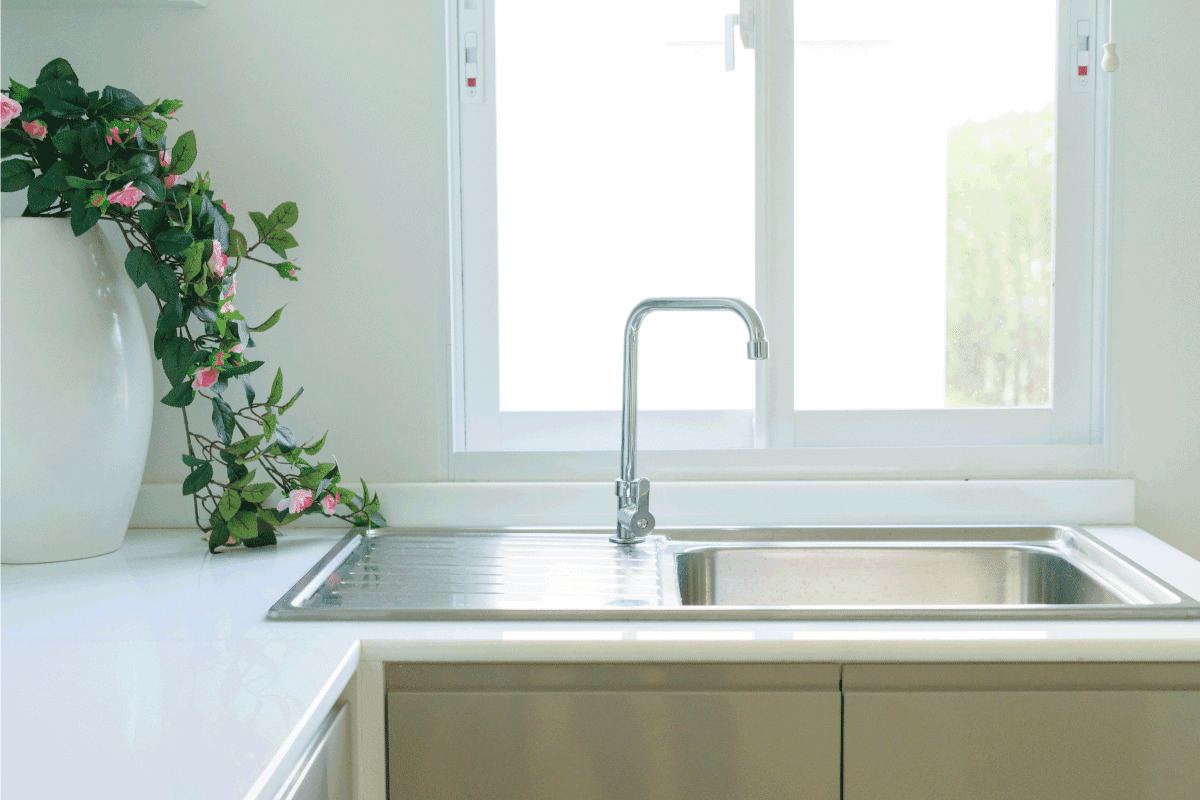
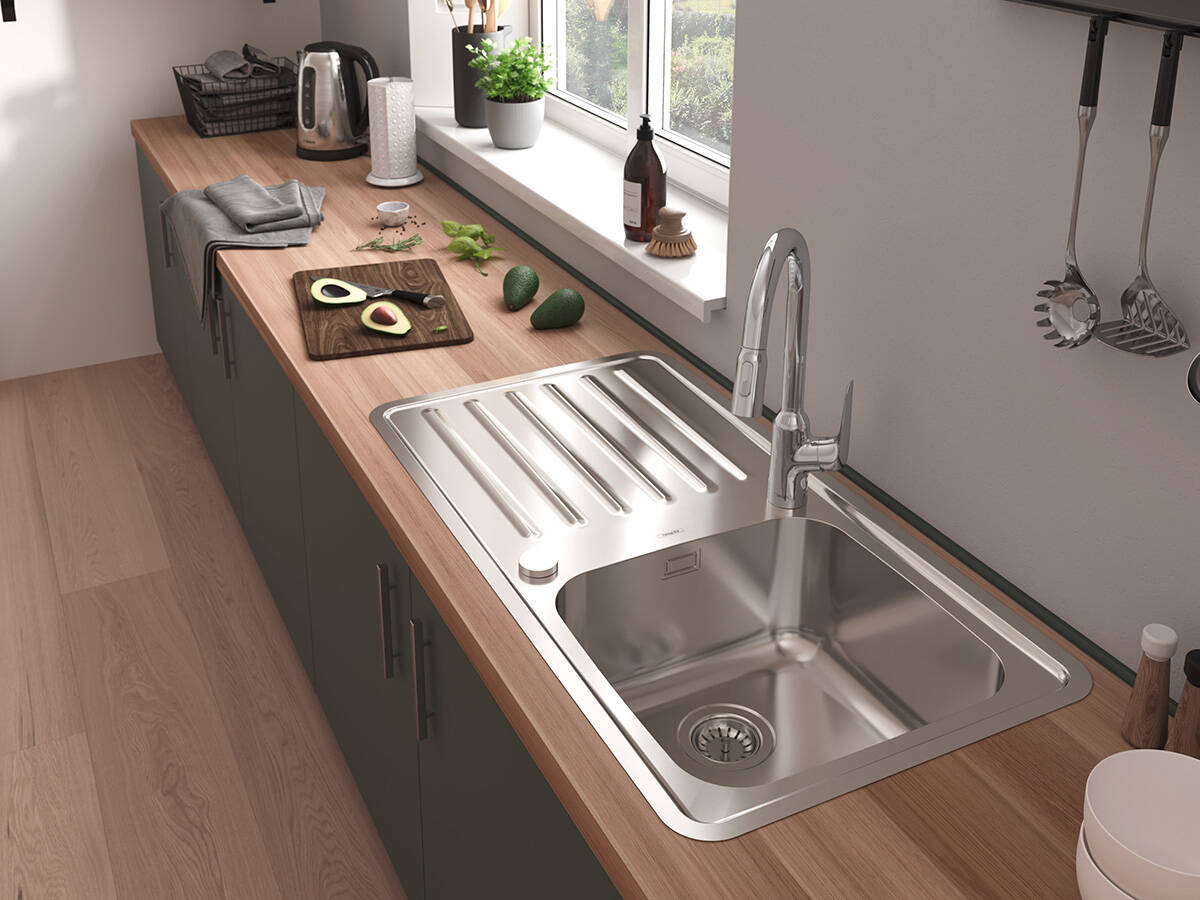
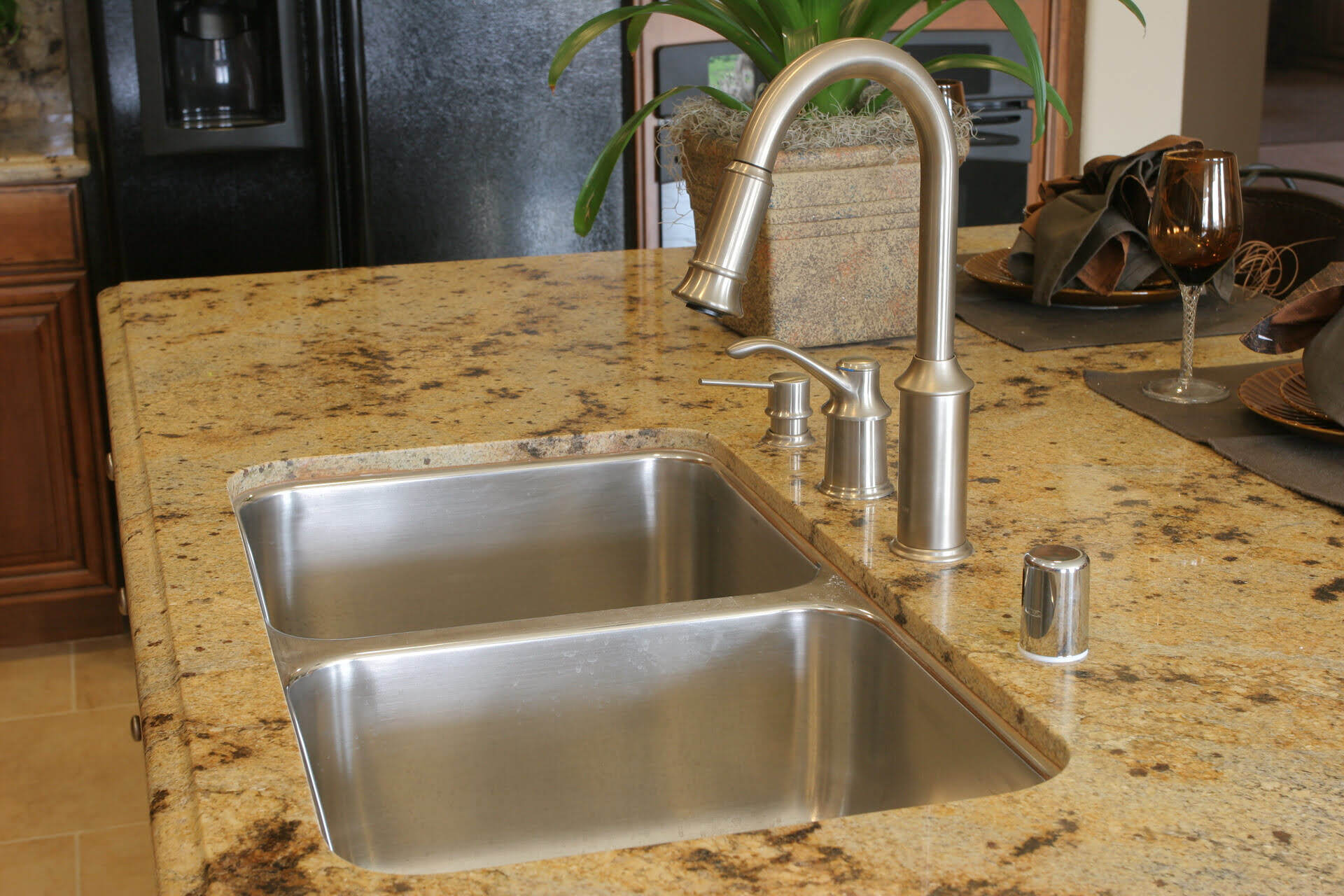
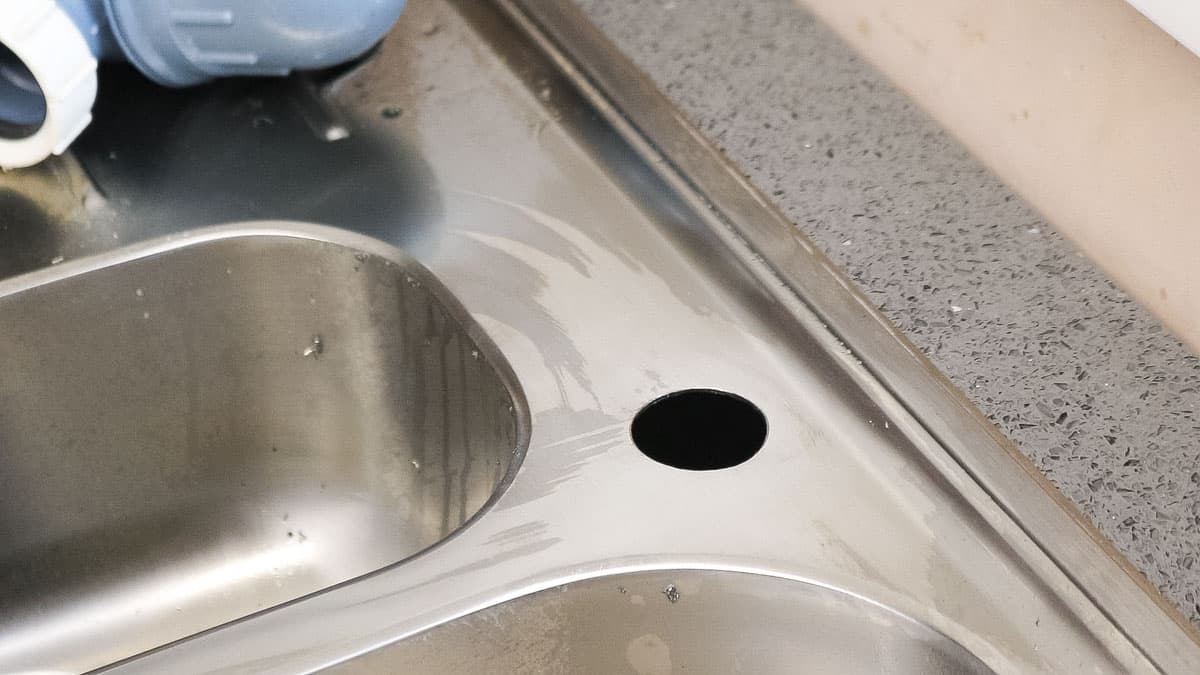
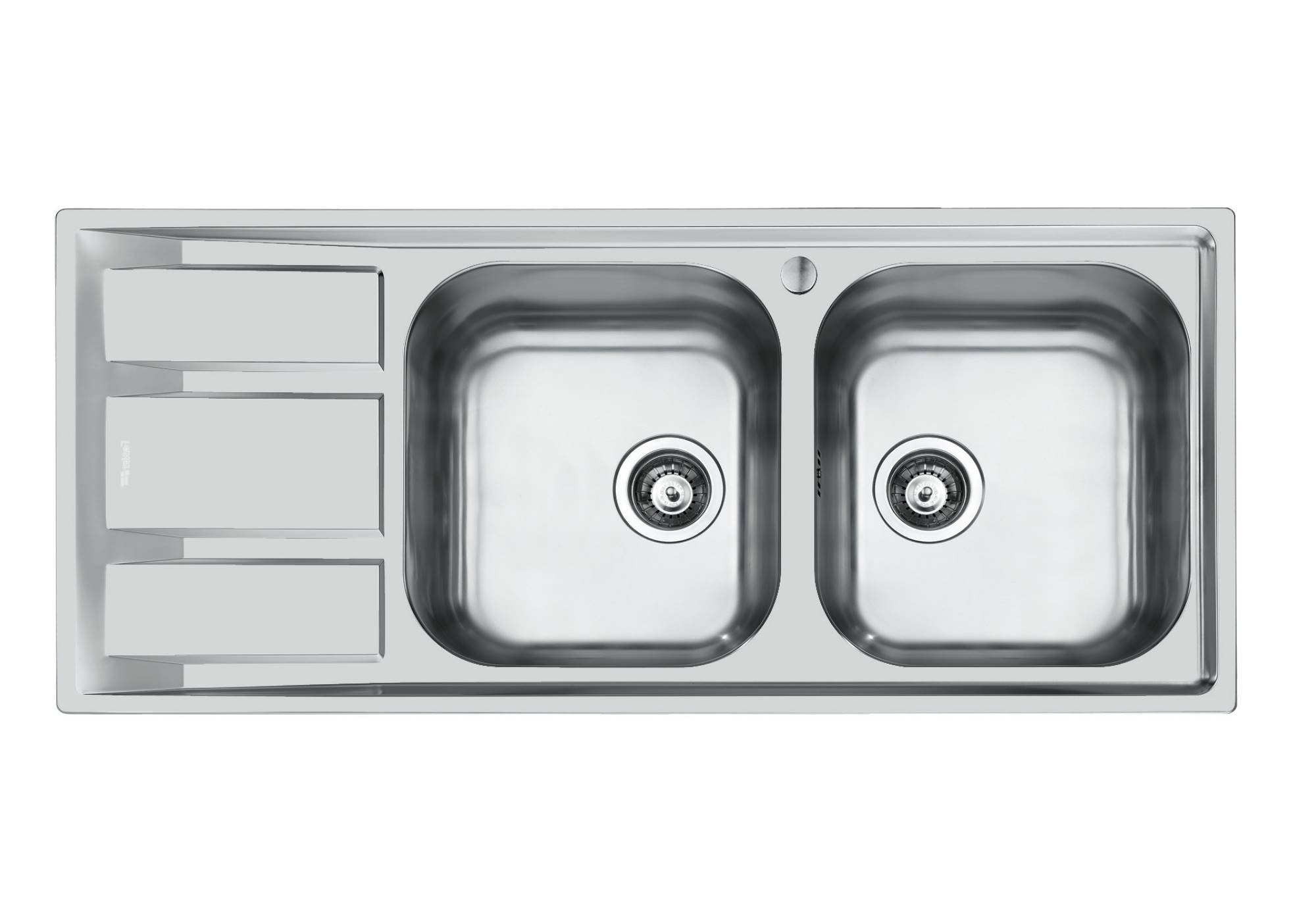
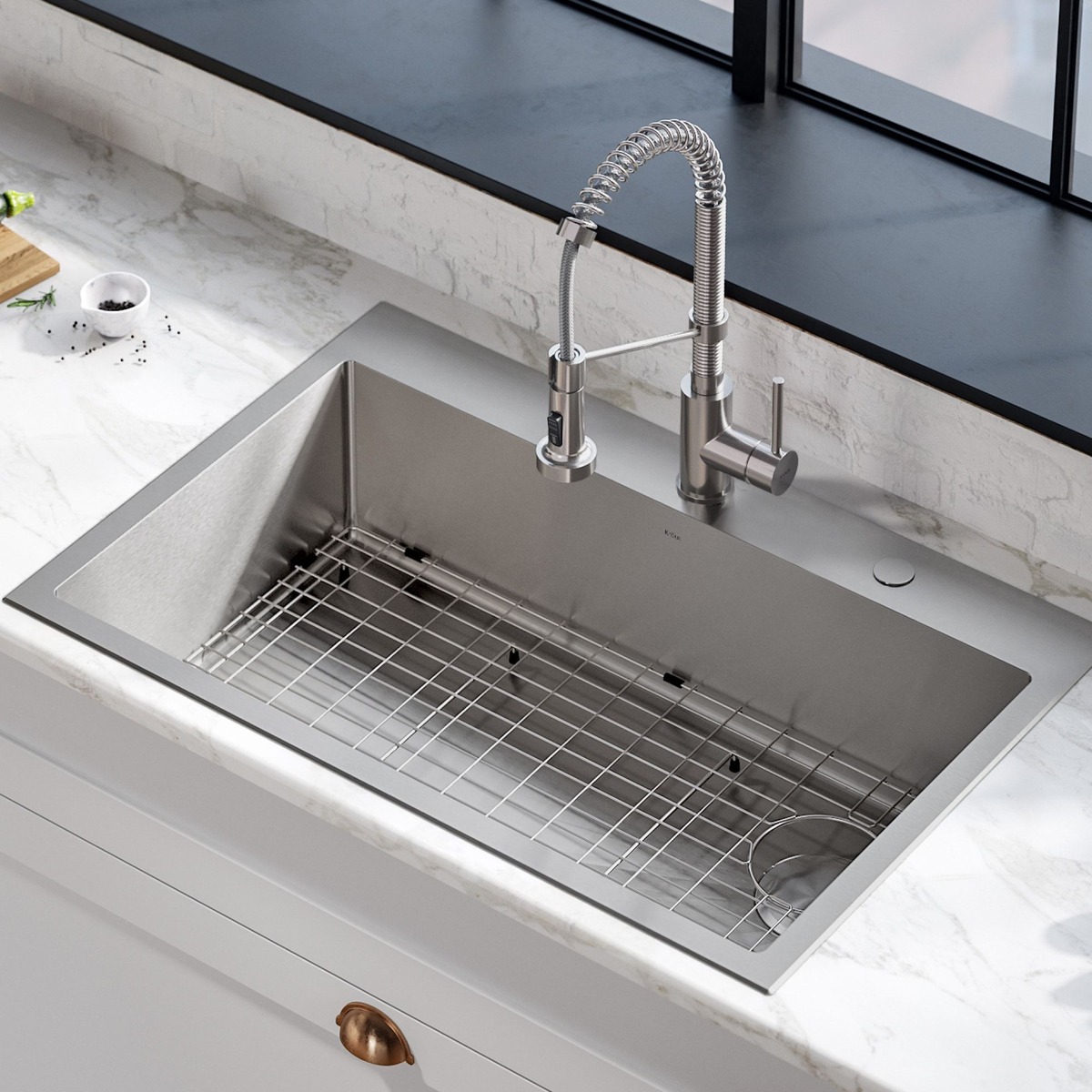
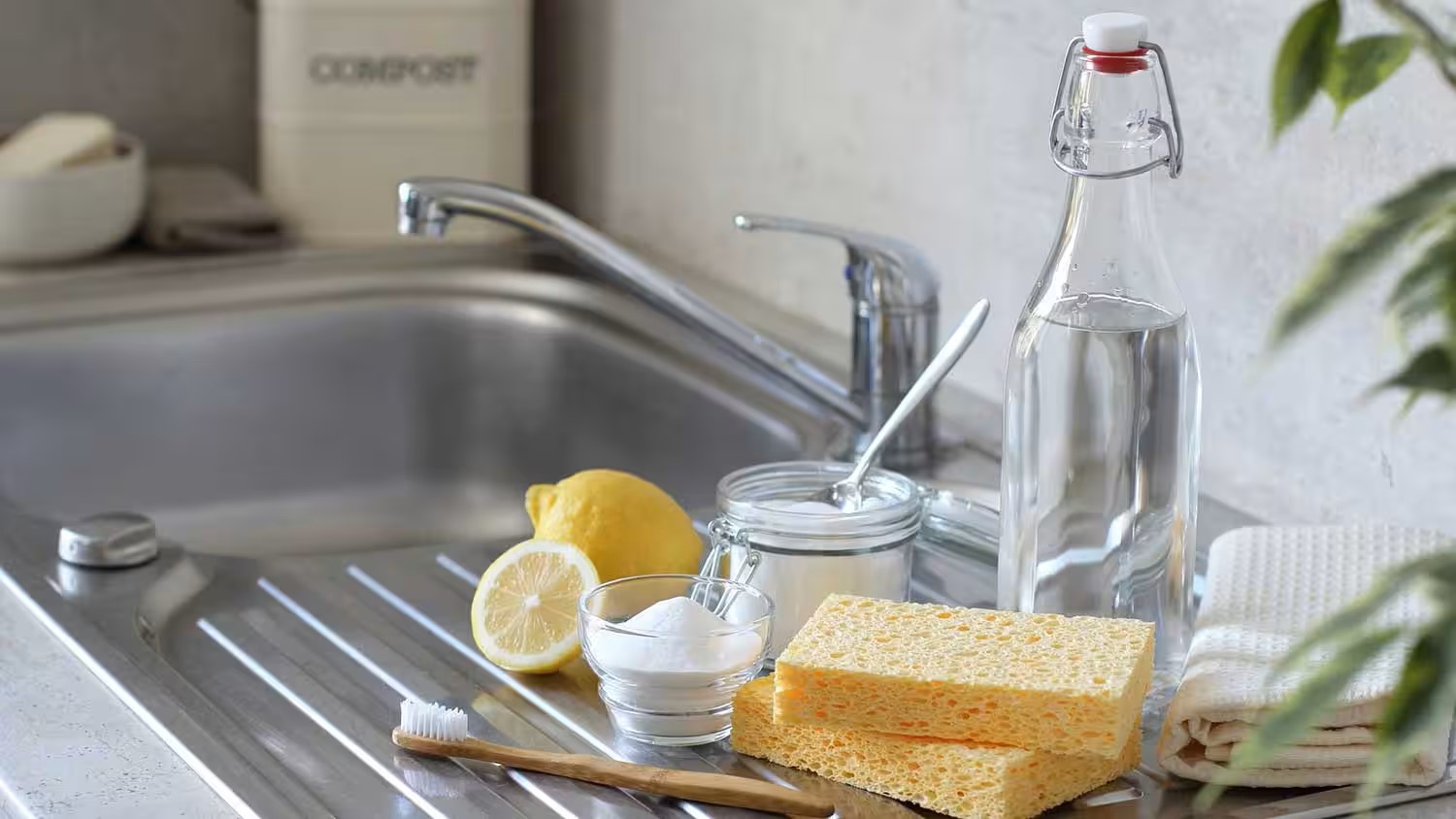
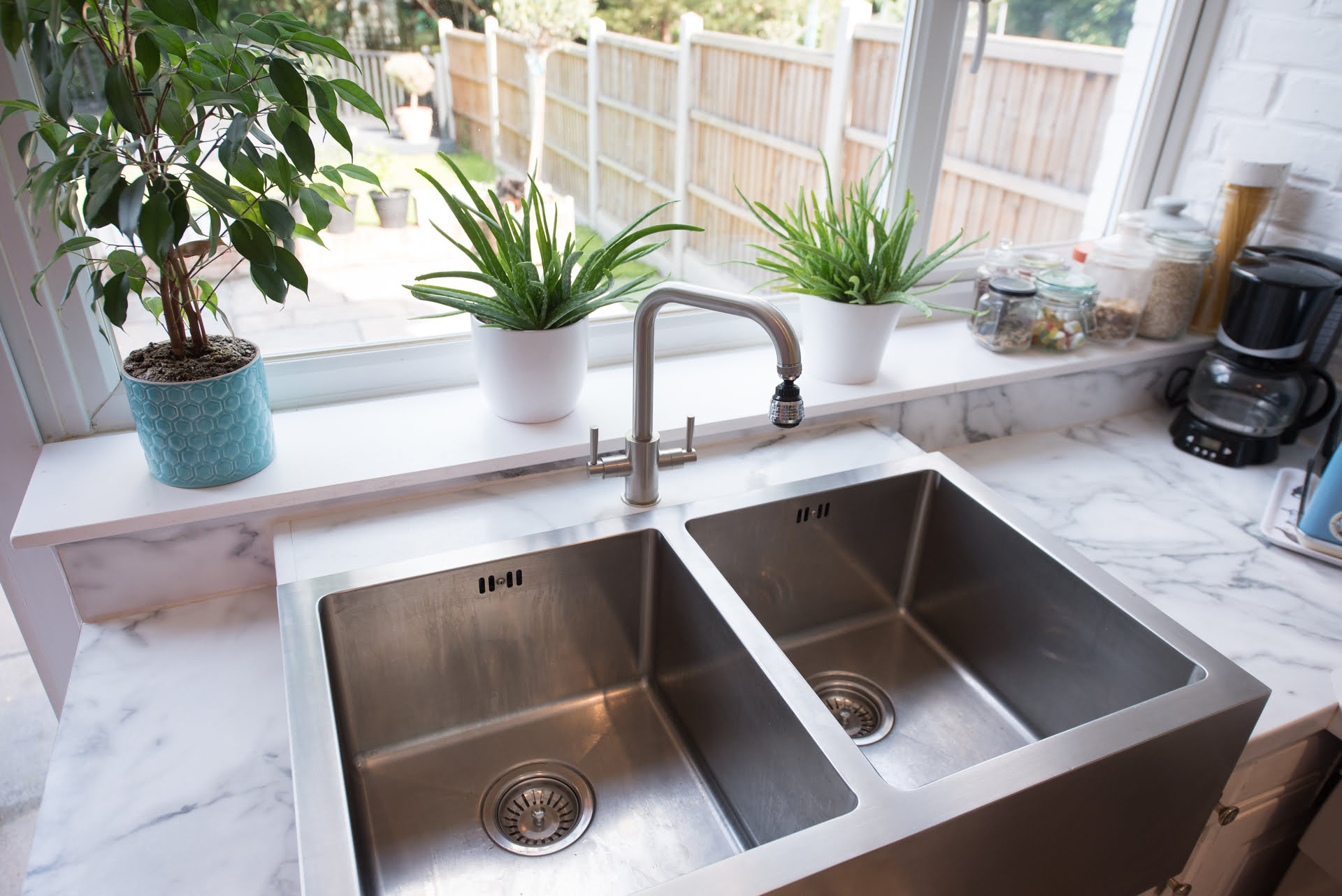
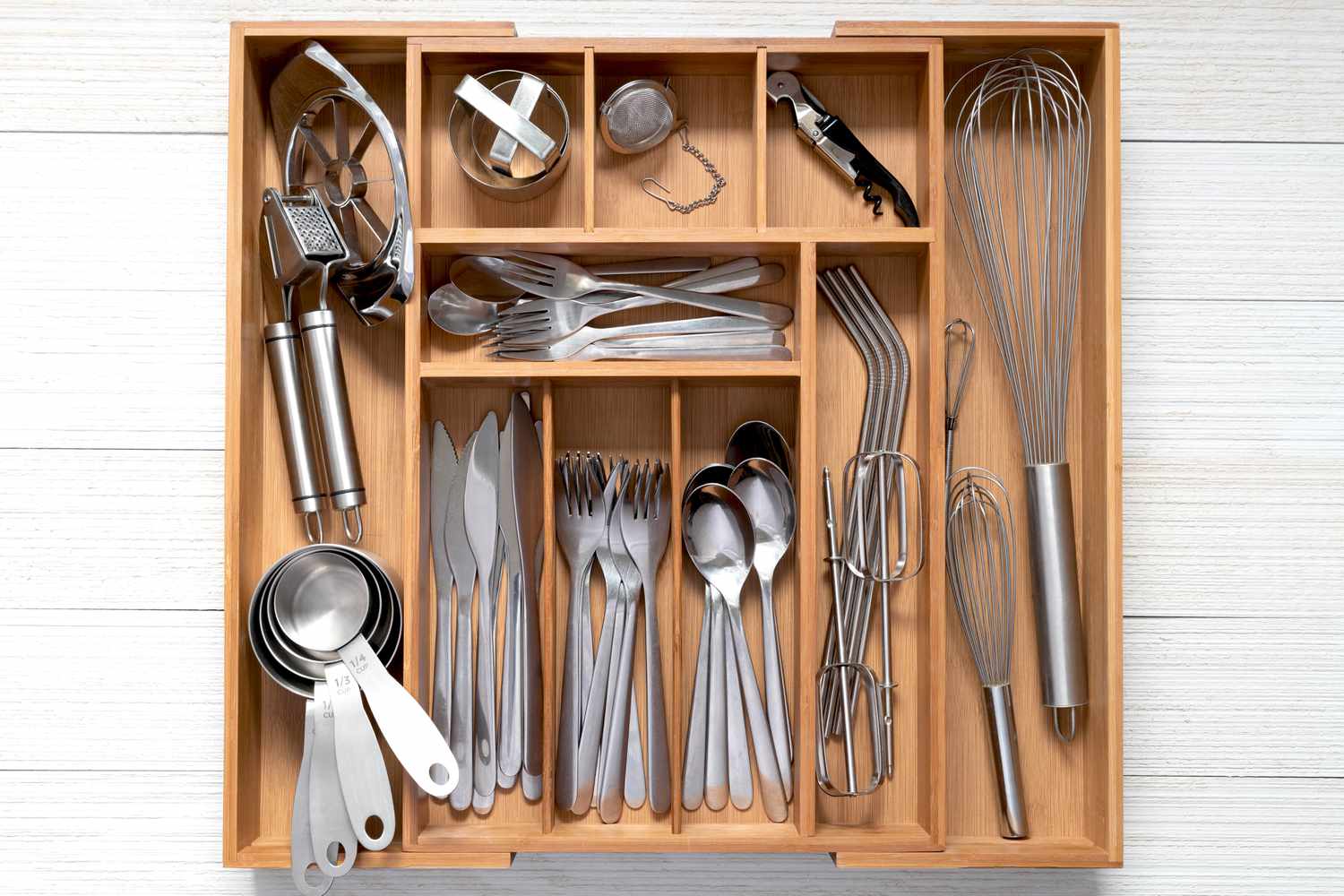
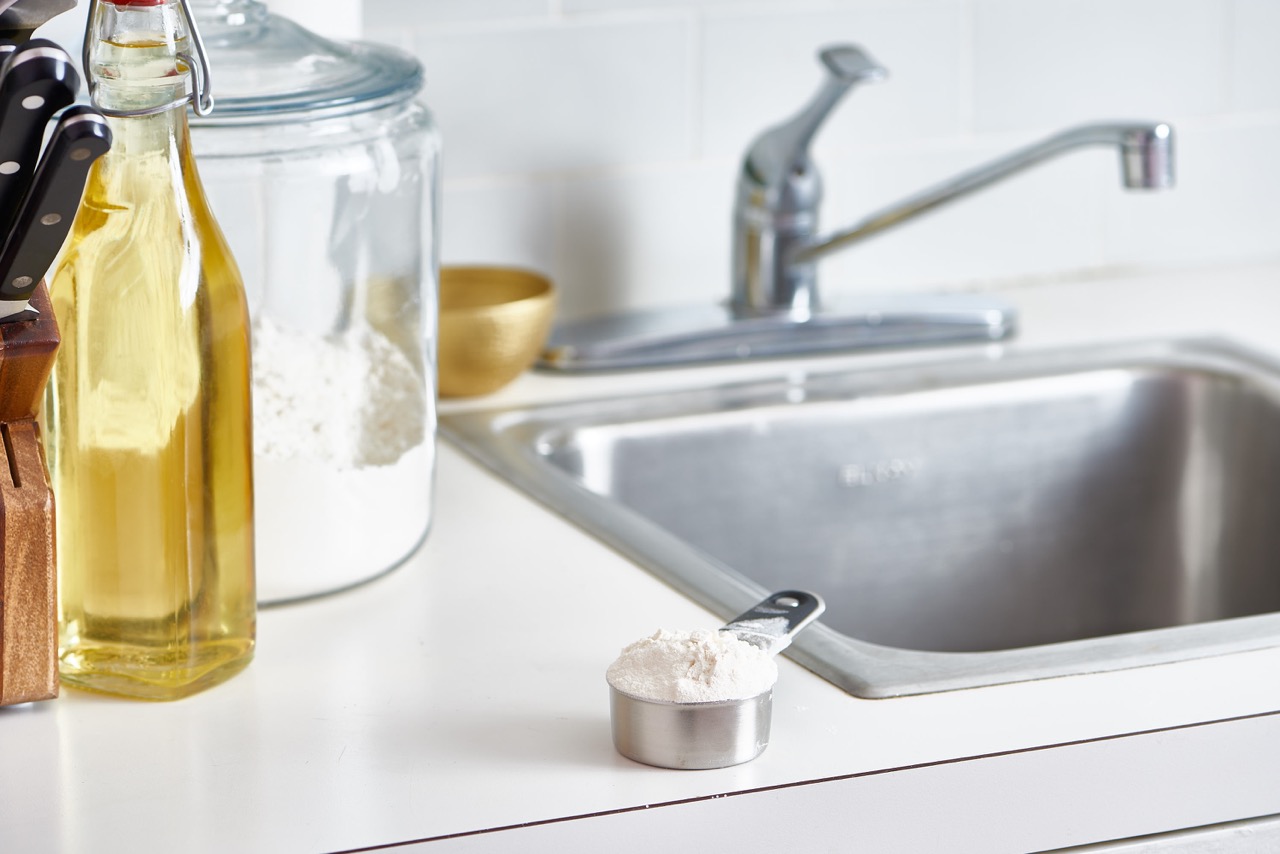
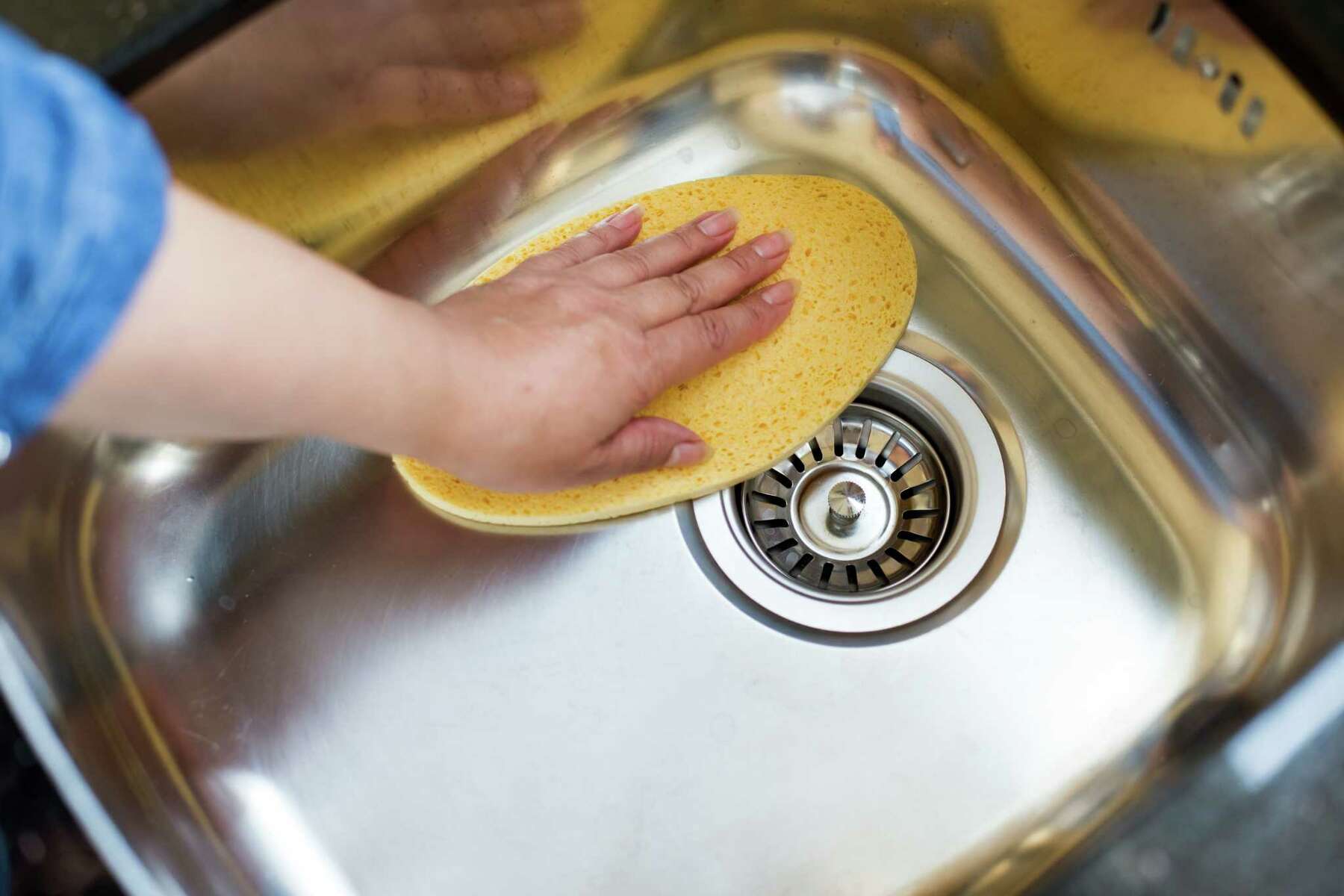
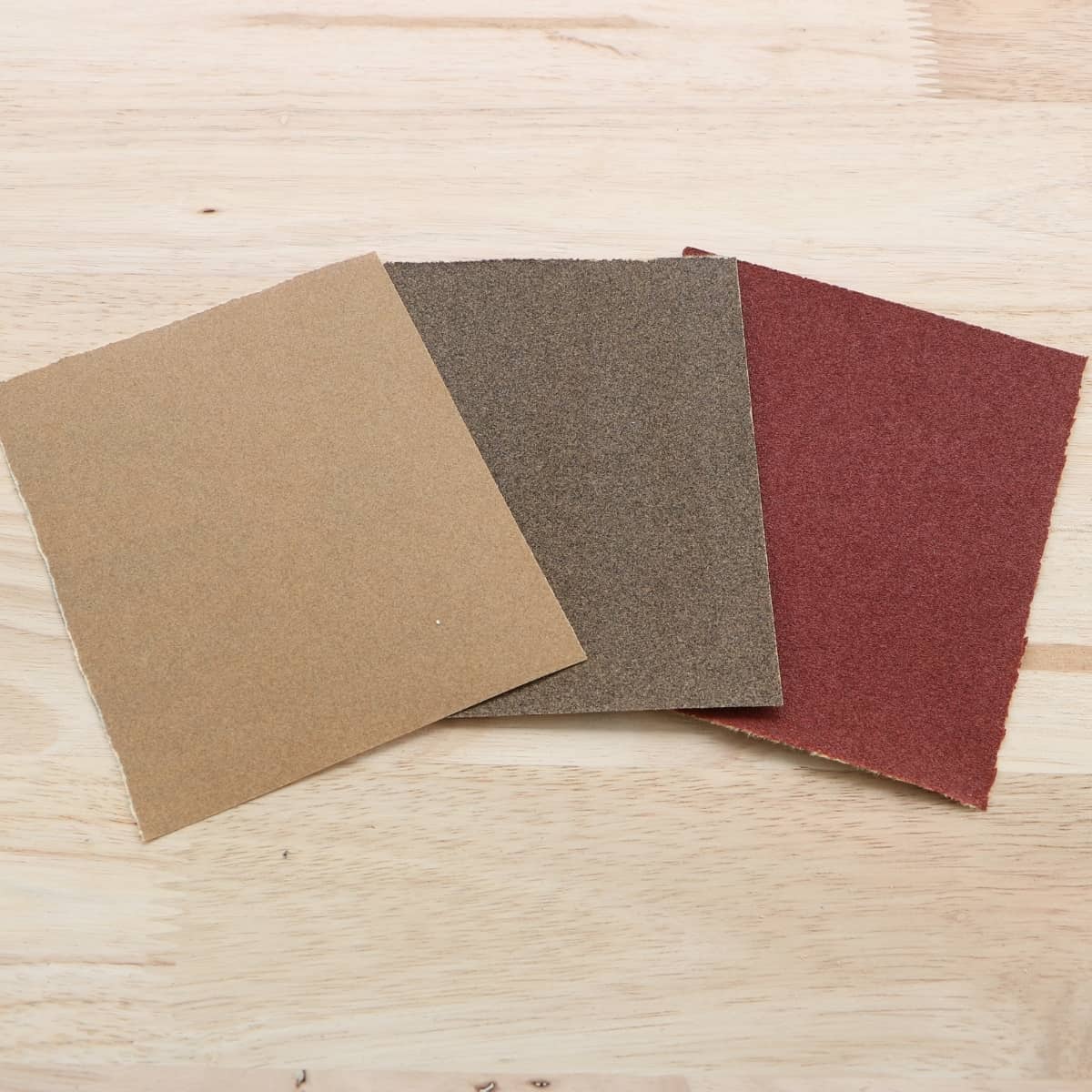
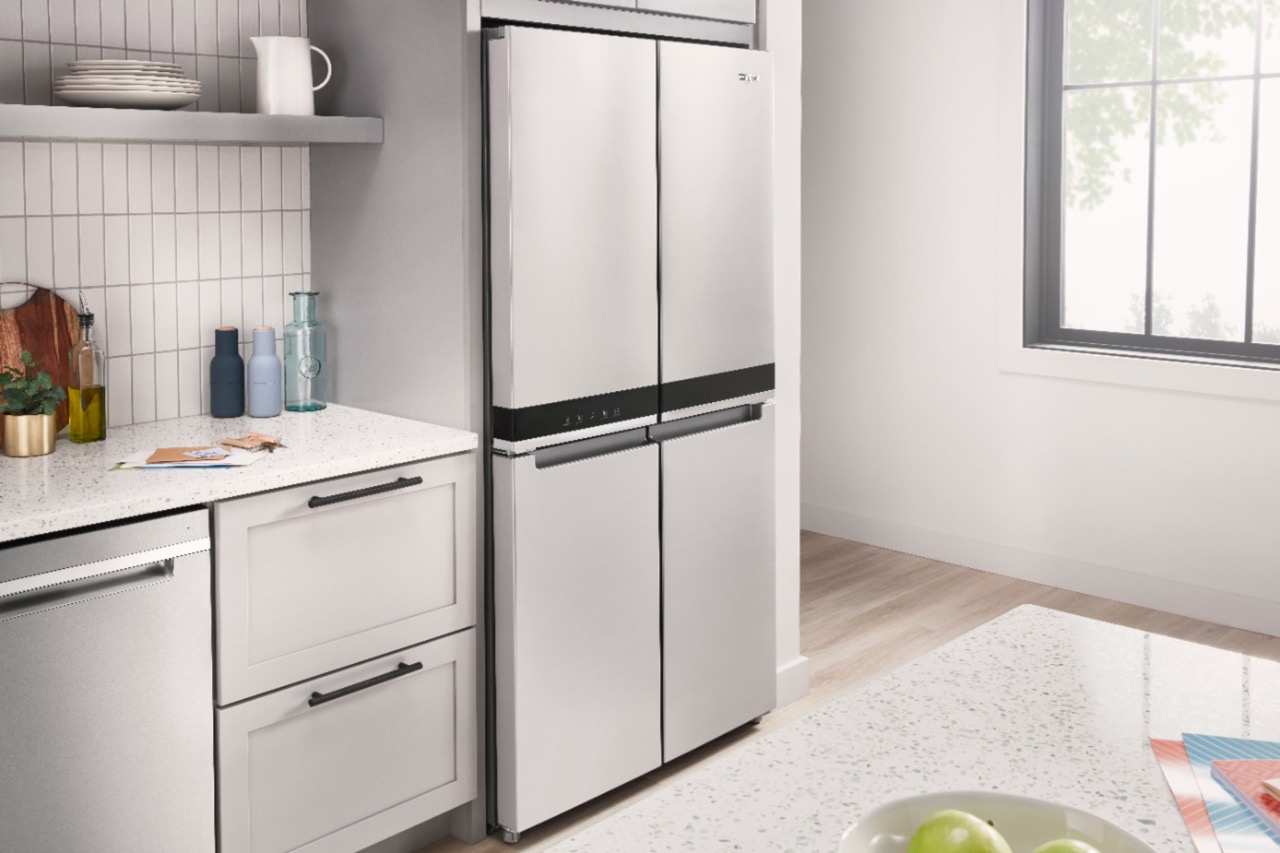
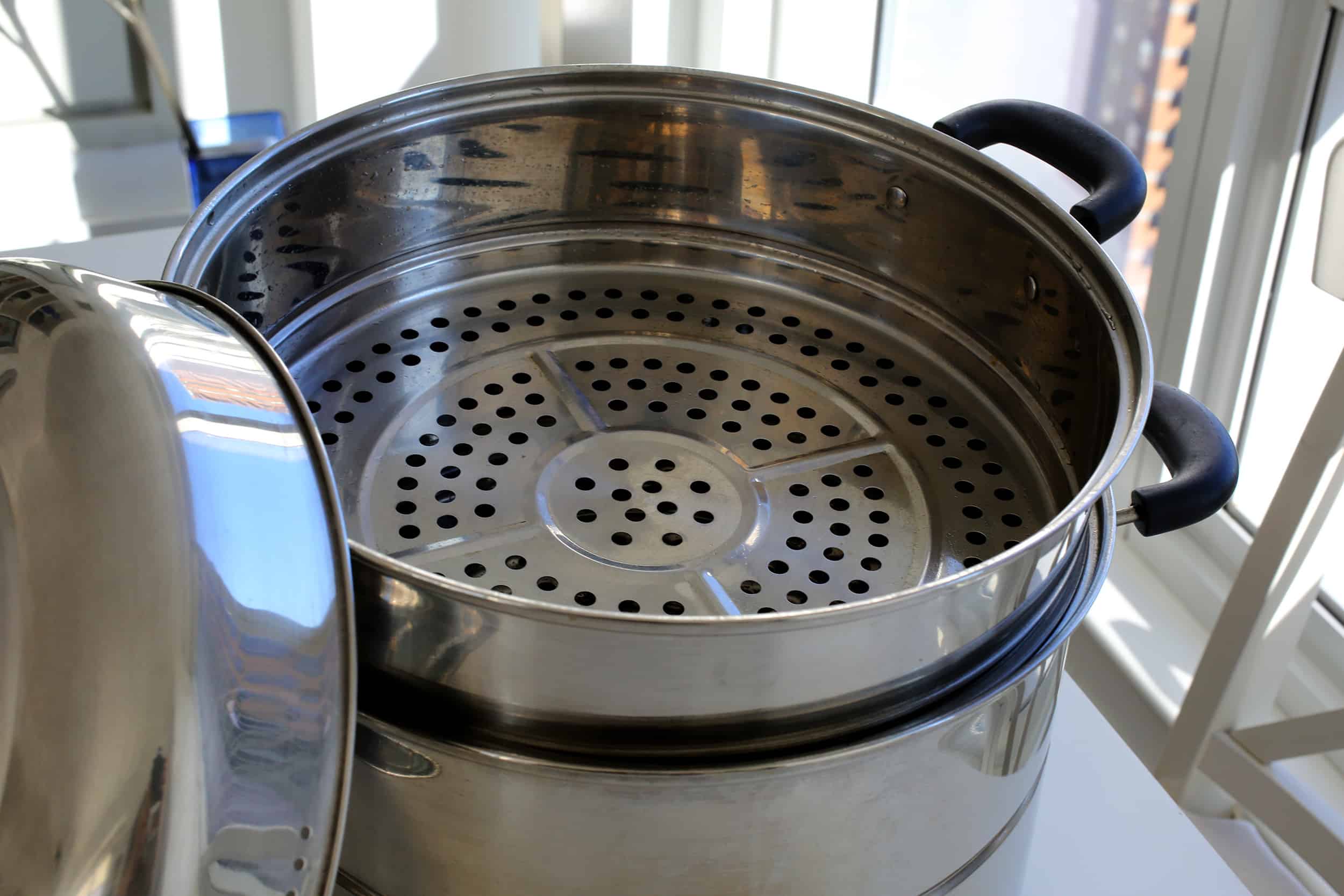

0 thoughts on “What Is The Best Gauge For A Stainless Steel Sink”